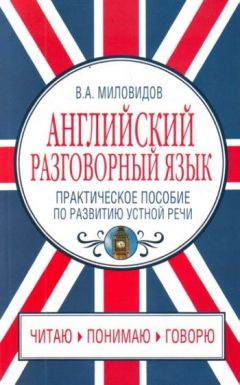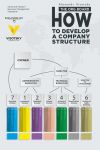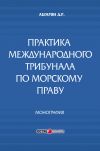
Автор книги: Виктор Миловидов
Жанр: Иностранные языки, Наука и Образование
Возрастные ограничения: +12
сообщить о неприемлемом содержимом
Текущая страница: 8 (всего у книги 16 страниц)
International Business

Companies that want greater control over their product have to manufacture it at home and then export it to the foreign countries. In this case exporters must examine the market.
Some firms can sell their products to an export/import merchant who takes all the selling risks. In other cases the company may use an export/import agent who sells the product to wholesalers or retailers in the foreign country. Sometimes the exporter may set up its own sales offices and branches abroad. This is more expensive, and only large firms can afford it.
US Imports in 2001 in $ Million
96.4 – Petroleum
34.5 – Motor vehicle parts
18.6 – Iron and steel
12.8 – Electrical machinery parts
14.7 – TV, radio and sound products
10.6 – Clothing
9.1 – Natural gas
8.8 – Chemicals
To go international a large firm can also set up a joint venture with a company in another country. In this case two companies pool their resources to design, manufacture and sell the product. Both firms profit by the results of this arrangement. They also share responsibility. One of the firms provides the necessary funds and know-how for producing goods. In return it gets a foothold in the foreign market. The other firm obtains financial aid and technical assistance. And it takes responsibility for handling red tape and organizing sales in the local market.
Слова и выражения:
afford – позволять (себе)
assistance – помощь, поддержка
branch – ветвь, филиал, представительство
chemical – химикат
clothing – одежда
design – разрабатывать, планировать
foothold – плацдарм
joint – совместный
machinery – оборудование, машины
motor – двигатель, автомобиль; моторизованный
petroleum – нефть
pool – «сливать» (средства)
responsibility – ответственность
retailer – розничный торговец
share – делить, разделять
vehicle – наземное транспортное средство
venture – предприятие, рискованное предприятие
wholesaler – оптовый торговец
control over product – контроль над продуктом
sound products – звукозаписывающие устройства (товары)
go international – выходить на международный рынок
in this case – в этом случае
export/import merchant – экспортно-импортный посредник
take the selling risks – брать на себя риски, связанные
с продажей
sales office – офис продаж
know-how – «ноу-хау»
in return – взамен, в ответ
red tape – бюрократия
Exercise 4
Answer the questions:
1. What do companies do if they want greater control over their product?
2. Who takes all the selling risks if companies sell their products to an export/import merchant?
3. Who in the foreign countries do export/import agents sell the product to?
4. What do exporters sometimes set up in foreign countries?
5. How much petroleum did the USA sell abroad in 2001 (in $ million)?
6. What is a joint venture?
7. What do companies that set up a joint venture pool?
8. What does a foreign company provide?
9. What does it get in return?
10. What is the home company responsible for?
The International Corporate Boat Race
An American automobile company and a Japanese auto company decided to have a competitive boat race on the Detroit River. Both teams practiced hard and long to reach their peak performance. On the big day, they were as ready as they could be.
The Japanese team won by a mile.
Afterwards, the American team became discouraged by the loss and their morale sagged. Corporate management decided that the reason for the crushing defeat had to be found. A Continuous Measurable Improvement Team of «Executives» was set up to investigate the problem and to recommend appropriate corrective action.
Their conclusion: The problem was that the Japanese team had 8 people rowing and 1 person steering, whereas the American team had 1 person rowing and 8 people steering. The American Corporate Steering Committee immediately hired a consulting firm to do a study on the management structure.
After some time and billions of dollars, the consulting firm concluded that «too many people were steering and not enough rowing.» To prevent losing to the Japanese again next year, the management structure was changed to «4 Steering Managers, 3 Area Steering Managers, and 1 Staff Steering Manager» and a new performance system for the person rowing the boat to give more incentive to work harder and become a superb performer. «We must give him empowerment and enrichment.» That ought to do it.
The next year the Japanese team won by two miles.
The American Corporation laid off the rower for poor performance, sold all of the paddles, cancelled all capital investments for new equipment, halted development of a new canoe, awarded high performance awards to the consulting firm, and distributed the money saved as bonuses to the senior executives.

Слова и выражения:
afterwards – после, впоследствии
appropriate – соответствующий
award – награда; награждать
boat – лодка
bonus – поощрение, бонус
canoe – каное
competitive – соревновательный, состязательный
corrective – коррекционные
defeat – поражение
empowerment – полномочия
enrichment – обогащение
halt – останавливать
investigate – исследовать
morale – моральное состояние
paddle – весло
peak – пик; пиковая, высшая
race – гонки
row – грести (веслами на лодке)
rower – гребец
sag – оседать, провисать
steer – рулить, управлять с помощью руля
superb – превосходный, непревзойденный
whereas – в то время как
by a mile – на милю
crushing defeat – сокрушительное поражение
A Continuous Measurable Improvement Team of Executives – Постоянный Совет Директоров по Обеспечению Измеримых Улучшений
The American Corporate Steering Committee – Американский Корпоративный Совет Рулевого Управления
prevent losing – предотвратить поражение, проигрыш
Steering Manager – Менеджер Рулевого Управления
Area Steering Manager – Зональный Менеджер Рулевого Управления
Staff Steering Manager – Менеджер Персонала Рулевого Управления
performance system – система исполнения
That ought to do it. – Этого должно хватить.
lay off – увольнять
senior executives – старшие управляющие
Exercise 5
Answer the questions:
1. What did the two companies decide to have?
2. What did the teams do to perform at their best?
3. Who won and by how far?
4. What happened to the American team's morale after the defeat?
5. What was made to investigate the problem?
6. What was the conclusion?
7. Who did the Americans hire to perform a study of the managerial structure?
8. How much money could it actually take to make the conclusion which the consulting firm had made?
9. What structural improvements were made in the American team?
10. Who of the Americans profited mostly from the whole thing?
Japanese Management Lecture
Four corporate presidents, one English, one French, one Japanese and one American, were on their way to an international business conference when they were kidnapped by terrorists and taken to a secret hideout.
«You, your companies, and your countries are enemies of the Revolution,» screamed the terrorist leader, «and you're going to be executed! Do you have any last requests?»
The Englishman spoke first.
«Before I die, I want to honour my country and protest this barbaric act by singing 'God Save the Queen' to all you men.»
«That can be arranged,» said the terrorist.
The Frenchman said, «And I want to honour my country before I die by singing 'The Marseilles' to your men.»
The Japanese said, «Before I die, I wish to honour my country by giving the lecture I was going to present on the Japanese style of industrial management.»
The terrorist turned finally to the American.
«What is your last request?»
The American replied, «I want you to kill me right now so I don't have to listen to another lecture on the Japanese style of industrial management!»
Слова и выражения:
barbaric – варварский
enemy – враг; вражеский
execute – казнить
hideout – укрытие
honour – отдавать честь, прославлять
kidnap – похищать (людей)
reply – ответ; отвечать
request – требование; требовать
terrorist – террорист
on their way – по пути (куда-либо)
"God Save the Queen" – «Боже, спаси Королеву»(Государственный Гимн Соединенного Королевства Великобритании и Северной Ирландии)
"The Marseilles" – «Марсельеза»(Государственный Гимн Французской Республики)
Japanese style of industrial management – японский стиль управления промышленностью
Exercise 6
Answer the questions:
1. Where were the presidents heading when they were kidnapped?
2. Why did the terrorists decide to kill them?
3. What was the last request of the English corporate president?
4. What did the French ask as the last wish?
5. Why did the American prefer to die rather than listen to the Japanese president?
Regulations of International Business
Some governments impose various regulations on businesses in their countries. Sometimes these regulations discourage foreign companies from entering home markets. In some countries all international businesses must have local partners. In other countries a foreign firm must have at least one native in the top management of a branch or a subsidiary. Some governments, for example in Mexico, insist that the local partners have the controlling interest. However, big firms like IBM refuse to do business on these grounds and usually manage to find the way out.
Government regulations limit what a company may do. For example, some countries demand that the company should file a plan indicating what it is going to produce, how many local workers it is going to hire and how much it will pay the workers. This plan must also fit into the government economic master plan. If the country changes its master plan, the foreign firm must change its plans, too.
Governments can prohibit the import or export of certain products for military, sanitary, moral or political reasons. A military embargo prevents weapons going to a certain country. The United States prohibit the import of certain birds and animals for sanitary reasons. Moral reasons are the grounds for embargoing cocaine, heroin and other drugs. Sometimes governments prevent the export for political reasons. For example, the United Nations set embargo on sales to, and purchases from, Rhodesia before it became Zimbabwe.
Sanctions are a form of reaction to illegal actions of another party. There are sanctions against dumping, for example. Dumping means shipping large amounds of a product to another country at prices below the cost of production or below the selling price.
Sometimes the government can encourage or discourage imports and exports of goods. It imposes quotas on certain products. An export quota specifies how much of a product can a manufacturer ship out. An import quota allows you to import to certain limit. The quota may be absolute (we reach a certain amount and can ship no more) or the government can combine it with a special tariff on all units over that amount. For example, we had an import quota of 6,000 automobiles. We had bought 6,000 automobiles with a 6.5 % tariff by the end of the last year, and all others we bought with a 45 % tariff.

The government also imposes special taxes or duties on imported goods. These are tariffs. Tariffs discourage imports because they make foreign goods more expensive. There are revenue tariffs that generate tax revenues and protective tariffs that protect home manufacturers. The purpose of the revenue tariffs is to raise money, and therefore these tariffs are rather low. The protective tariffs are much higher.
Слова и выражения:
absolute – абсолютный
cocaine – кокаин
discourage (from) – расхолаживать, отвращать (от чего-либо), препятствовать
drug – лекарство, наркотик
dumping – демпинг, демпинговая торговля
embargo – эмбарго
encourage – поощрять
file – представлять (план), подавать (документы)
generate – вырабатывать, создавать
heroin – героин
illegal – незаконный, нелегальный
impose (on) – налагать
insist (on) – настаивать (на чем-либо)
military – военный
moral – моральный
native – местный (житель)
party – сторона (в сделке, на переговорах)
prevent – предотвращать
prohibit – запрещать
quota – квота
reason – причина
regulations – ограничения, законы; регулирующие акты и действия
revenue – выручка, приход (средств)
sanctions – санкции
sanitary – санитарный
specify – определять, специфицировать
subsidiary – филиал
tariff – тариф
unit – единица (продукции)
various – разнообразные
weapons – оружие
home market – внутренний рынок
local partners – местные партнеры
top management – высшее руководство
controlling interest – контрольный пакет акций
on these grounds – на этих условиях, на этих основаниях
way out – выход
economic master plan – генеральный план развития экономики
ship out – вывозить
to a certain limit – до определенного предела
revenue tariff – фискальный тариф
protective tariff – протекционистский тариф
raise money – собирать средства
Exercise 7
Answer the questions:
1. Why do governments impose various regulations on businesses in their countries?
2. What kind of regulations could those be?
3. What does a foreign company have to do if its plans are a part of the government economic master plan, and the local authorities change their economic policy?
4. What reasons can governments prohibit import or export for?
5. What reasons make governments prohibit import of animals?
6. What is sanctions?
7. What is dumping?
8. How does the absolute quota work?
9. What does a government impose tariffs on imported goods for?
10. What is the difference between the revenue tariff and the protective tariff?
Helping Foreign Trade
There are some institutions and policies in the world that foster international trade. If these institutions did not exist, many companies would not at all be able to go inter – national. The U.S. government created the Export-Import Bank (Eximbank) in order to reduce unemployment in the country. Eximbank makes loans to U.S exporters and foreign buyers of U.S. imports if private financing is not available. A firm can also buy insurance from the Foreign Credit Insurance Association (FCIA) to cover political risk, such as expropriation and loss due to war. The exporter can also buy insurance coverage on credit sales to foreign customer.
More known are the International Bank for Reconstruction and Development (World Bank) and the International Monetary Fund (IMF). The former fosters the economic development of member nations by making loans to them. The latter eliminates trade barriers and promotes financial cooperation among member countries. Thus, if firms in Argentina wish to buy from American firms but Argentina lacks American dollars, Argentina can borrow USD from IMF. Then it pays the loan back.
The General Agreement on Tariffs and Trade (GATT) is an international agreement in which member countries agreed to try to reduce trade barriers. Since 1948 GATT has arranged several rounds of negotiations to cut tariffs on thousands of products and to remove many nontariff barriers to trade (Tokyo Round – 1975–1979, Geneva Round – 1983). The International Development Association (IDA) and the International Finance Corporation (IFC) make loans to private businesses if they cannot obtain funds from other sources.
Other means of helping foreign trade are Foreign Trade Zones (Free Trade Zones). Foreign Trade Zones (FTZs) are areas in the country that are treated as foreign territory. Foreign goods can be imported into these areas without payment of duties imposed by the national government. These goods can then be sold and shipped from the FTZ to other countries duty-free. When these goods are shipped into the country to which FTZ belongs, the duty is imposed.
The advantage of FTZ is that it provides jobs for native workers and markets for goods produced in the country. There are now ninety seven such zones in the USA, for example. They are doing more than $ 7 billion of business and create more than 30 thousand jobs. The most well-known are the Brooklyn Navy Yard (New York), Del Rio (Texas), Port Everglades (Florida), etc. In the Brooklyn Navy Yard over 150 firms do business. Many U.S. workers there repackage goods for shipment to foreign markets. In other cases companies use an FTZ to delay customs duties on goods that are not yet ready for market. For example, a wine company in the New Orleans FTZ is aging its wine for future distribution.

Слова и выражения:
age – возраст; выдерживать (о вине)
area – зона, область
borrow – занимать, брать ссуду
cover – покрывать
coverage – покрытие
delay – откладывать, отлагать
distribution – распределение, торговля
eliminate – уничтожать, ликвидировать
expropriation – экспроприация
former – первый (из перечисленных)
foster – поощрять, благоприятствовать
institution – организация
insurance – страхование, страховка
lack – недостаток; иметь недостаток
loan – заем, ссуда; давать ссуду, заем
loss – потери
nontariff – не связанный с тарифами
promote – продвигать, поощрять
repackage – переупаковывать
treat – обращаться (с кем-либо как-либо)
wine – вино
political risk – риск, связанный с политической нестабильностью
due to – из-за, благодаря (чему-либо)
insurance coverage – страховое покрытие
credit sales – торговля в кредит
member nations – страны-участники
trade barrier – торговый барьер
USD – индекс доллара (валюты)
pay back – возмeщать, выплачивать (ссуду, заем)
round of negotiations – раунд переговоров
duty-free – беспошлинный
customs duties – таможенные пошлины
Export-Import Bank (Eximbank) – Экспортно-импортный банк
Foreign Credit Insurance Association (FCIA) – Ассоциация по страхованию заграничного кредитования
International Bank for Reconstruction and Development (World Bank) – Международный банк реконструкции и развития
International Monetary Fund (IMF) – Международный валютный фонд
General Agreement on Tariffs and Trade (GATT) – Генеральное соглашение о тарифах и торговле
International Development Association (IDA) – Международная ассоциация развития
International Finance Corporation (IFC) – Международная финансовая корпорация
Foreign Trade Zone – зона свободной торговли
Tokyo – Токио
Geneva – Женева
New Orleans – Новый Орлеан
Exercise 8
Answer the questions:
1. Why did the US government create the Eximbank?
2. In what cases does the Eximbank make loans?
3. Where do firms buy insurance to cover political risks?
4. What role does the World Bank play in the world's economic system?
5. How does IMF operate on the world market?
6. What is the purpose of GATT?
7. What is a FTZ, and how does it work?
8. What is the main advantage of a FTZ?
9. How many FTZs are there in the USA?
10. What do the workers do at the Brooklyn Navy Yard?
5. Как работает фондовая биржа
(How to Make Money in the Stock Market)
Securities Markets
Securities are bought and sold at two types of securities markets: primary markets, which issue new securities, and secondary markets, where previously issued securities are rebought and resold. If a company wants to sell a new issue of stock or bonds, it usually negotiates with an investment bank, or underwriter, who sells the securities for it. The underwriter buys the securities from the corporation and resells them to individual investors through the secondary markets.
Organized security exchanges have developed to make the buying and selling of securities easier. The securities exchanges consist of individual investors, brokers, and intermediaries who deal in the purchase and sale of securities. Security exchanges do not sell or buy securities, they simply provide the location and services for the brokers who buy and sell.
Stock transactions are handled by a stockbroker.
A stockbroker buys and sells securities for clients. Stockbrokers act on the clients' orders. Stockbrokers receive a fee and are associated with a brokerage house. To trade on the exchange, a «seat» must be purchased.
A seat is a membership. The members represent stockbrokers. When a stockbroker calls in an order to sell, the member representing that broker looks for a buyer at the price requested. When a broker calls in an order to buy, the exchange member looks for a buyer at the price offered.
The largest and best known exchange in the USA is the New York Stock Exchange (NYSE), also called «Big Board». There are more than 1,300 seats on the NYSE, and approximately 2,000 stocks and 3,500 bonds are traded daily. In order to be listed on the NYSE, a firm has to meet the following requirements:
1. Pretax earnings of at least $2.5 million in the previous year.
2. Tangible assets of at least 16 million.
3. At least 1 million shares of stock publicly held, and others.
The second largest stock market in the USA is the American Stock Market Exchange (AMEX). It is located in Manhattan and has about 500 full members and 400 associate members. AMEX operates in much the same way as NYSE, but smaller companies may qualify for listing.
There are also regional stock exchanges that serve regional markets.
The over-the-counter market (OTC) sells and buys unlisted securities outside the organized securities exchanges. About 5,000 brokers of OTC are scattered all over the country. They trade unlisted stocks and bonds by phone and keep in contact with each other.
The prices of the securities are established by supply and demand. Electronic screens in the offices of the brokerage firms display OTC transactions, so brokers continually keep customers up to date on the latest prices.
Options are traded on the major stock exchanges, but also on a special market for options, the Chicago Bond Options Exchange (CBOE).

Слова и выражения:
approximately – приблизительно
assets – активы
bond – облигация
broker – брокер
fee – комиссионные
intermediary – посредник
investor – инвестор
issue – выпуск, эмиссия; выпускать
list – регистрироваться (на бирже)
membership – членство
negotiate – вести переговоры, торговать
option – опцион
order – приказ
pretax – до налогообложения
previous – предыдущий
previously – прежде
primary – первичный
scatter – разбрасывать
seat – место на бирже
secondary – вторичный
security – ценная бумага
stock – активы, акции
stockbroker – биржевой брокер, занимающийся продажей ценных бумаг, фондов
tangible – осязаемые (активы)
transaction – сделка
underwriter – поручитель
investment bank – инвестиционный банк
security exchange – фондовая биржа
deal in – работать, вести дела (в сфере)
brokerage house – брокерская контора
New York Stock Exchange – Нью-йоркская фондовая биржа
Big Board – Большое табло
be listed – быть зарегистрированным (на бирже)
meet the requirements – соответствовать требованиям
publicly held – распределенные среди инвесторов открытого акционерного общества
American Stock Market Exchange – Американская фондовая биржа
associate member – ассоциированный член
qualify for listing – соответствовать условиям регистрации
over the counter – без посредников (букв.: через прилавок)
unlisted securities – незарегистрированные ценные бумаги
up to date – современный, текущий
Chicago Bond Options Exchange – Чикагская опционная биржа облигаций
Exercise 1
Answer the questions:
1. What markets are securities bought and sold at?
2. What is the difference between primary and secondary markets?
3. What does a company do if it wants to issue securities?
4. What is the structure of a securities exchange?
5. Who are stock transactions handled by?
6. How do stockbrokers earn their money?
7. What requirements does a firm have to meet to be listed at NYSE?
8. What is the difference between NYSE and AMEX?
9. What securities does OTS market deal in?
10. How are the prices of securities established?
1
The Waltons invited their new neighbours over to dinner. During dinner Mr. Walton was asked what he did for a living.
Eight-year-old Brian Walton jumped in and said, «Daddy is a fisherman!» To which Mrs. Walton replied, «Brian, why do say that? Your daddy is a stockbroker, not a fisherman.»
«No, mom. Everytime we visit dad at work and he hangs up the phone he laughs, rubs his hands together and says 'I just caught another fish'.»
2
Two women were walking through the woods when a frog called out to them and said: «Help me, ladies! I am a stockbroker who, through an evil witch's curse, has been transformed into a frog. If one of you will kiss me, I'll be returned to my former state!»
One woman took out her purse, grabbed the frog, and stuffed it inside her handbag. The other woman, aghast, screamed, «Didn't you hear him? If you kiss him, he'll turn into a stockbroker!»
The second woman replied, «Sure, but these days a talking frog is worth more than a stockbroker!»
Слова и выражения:
aghast – пораженный ужасом, ошеломленный
curse – проклятие; проклинать
dad – папочка
daddy – папочка
evil – зло; злобный
fisherman – рыбак
frog – лягушка
grab – хватать
mom – мамочка
purse – кошелек
rub – тереть, потирать
scream – орать, вопить
stuff – запихивать
witch – ведьма
wood – лес
hang up the phone – вешать телефонную трубку
is worth more – стоит гораздо больше
Exercise 2
Answer the questions:
1. Where did the Waltons invite their new neighbors?
2. Why did little Brian say that his dad was a fisherman?
3. Who called out to the women in the woods?
4. What had happened tp the stockbroker?
5. Why did the woman not kiss the frog?
Правообладателям!
Это произведение, предположительно, находится в статусе 'public domain'. Если это не так и размещение материала нарушает чьи-либо права, то сообщите нам об этом.








































